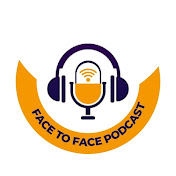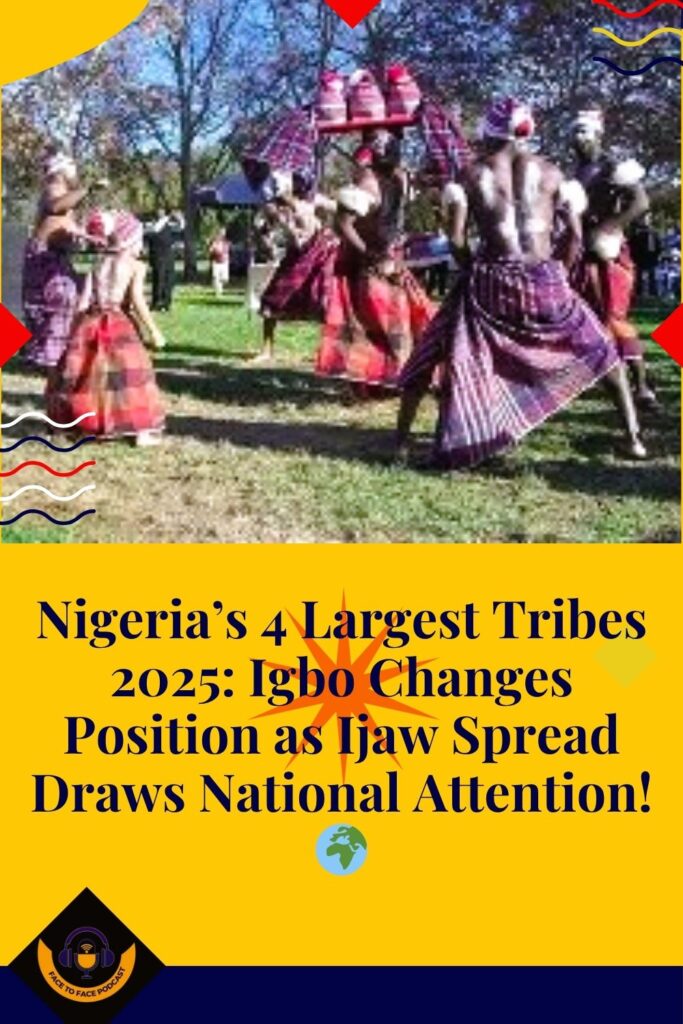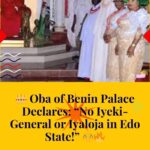A fresh wave of discussion is sweeping through Nigeria’s social and cultural circles as new reports and observations reveal the massive territorial spread of the Ijaw Nation — stretching continuously across multiple states without interruption from any other tribe.
For years, the conversation around Nigeria’s largest tribes has revolved around the well-known “Big Four”: Hausa, Yoruba, Igbo, and Fulani. But as we enter 2025, emerging facts may be rewriting that familiar list — with the Ijaw ethnic group now making a compelling case for inclusion among Nigeria’s most dominant tribes.
According to cultural and historical findings, the Ijaw people spread uninterruptedly from the Furupagha Kingdom in Odigbo Local Government Area of Ondo State, whose headquarters is Ore, all the way to Bakassi in Obolo-Oro, Akwa Ibom State, bordering Cameroon.
This expansive presence runs seamlessly through Ondo, Edo, Delta, Bayelsa, Rivers, and Akwa Ibom States — a geographical dominance that no other southern ethnic group can claim without overlap.
It’s an incredible span of land and heritage that connects Nigeria’s coastline in a cultural thread woven by the Ijaw people for centuries.
The Ijaw are among Nigeria’s oldest indigenous peoples, with a history that predates colonial boundaries. Known for their vibrant fishing culture, seafaring heritage, and strong community identity, the Ijaw have played a crucial role in the economic and political life of the Niger Delta — home to the nation’s oil wealth.
Beyond their numbers, their territorial continuity sets them apart, showing that the Ijaw are not just coastal dwellers but a people whose influence runs deep across the heart of Southern Nigeria.
The claim that the Igbo may have changed position in the 2025 tribal ranking has fueled intense debate.
While the Hausa and Yoruba still top the chart by population, analysts now argue that the Ijaw’s uninterrupted territorial span and cultural cohesion could place them among Nigeria’s most dominant ethnic blocs — both in influence and historical presence.
This revelation challenges long-held assumptions about Nigeria’s ethnic structure and raises new questions about representation, recognition, and national identity.
At FaceToface TV, we see this conversation not as a competition, but as an awakening.
Nigeria’s greatness lies in its diversity, and every tribe — large or small — contributes to the mosaic that defines our identity as a nation.
However, the Ijaw story stands out as a reminder that heritage matters, and recognition should be based not just on population, but also on cultural and territorial significance.
The Ijaw Nation’s stretch from Ondo to Bakassi is not just a geographical marvel — it’s a symbol of continuity, resilience, and pride.
Do you agree that the Ijaw Nation deserves a place among Nigeria’s top four tribes?
Has the Igbo position really shifted in the 2025 tribal landscape?
Share your thoughts below 👇 — let your voice be heard on FaceToface TV!



